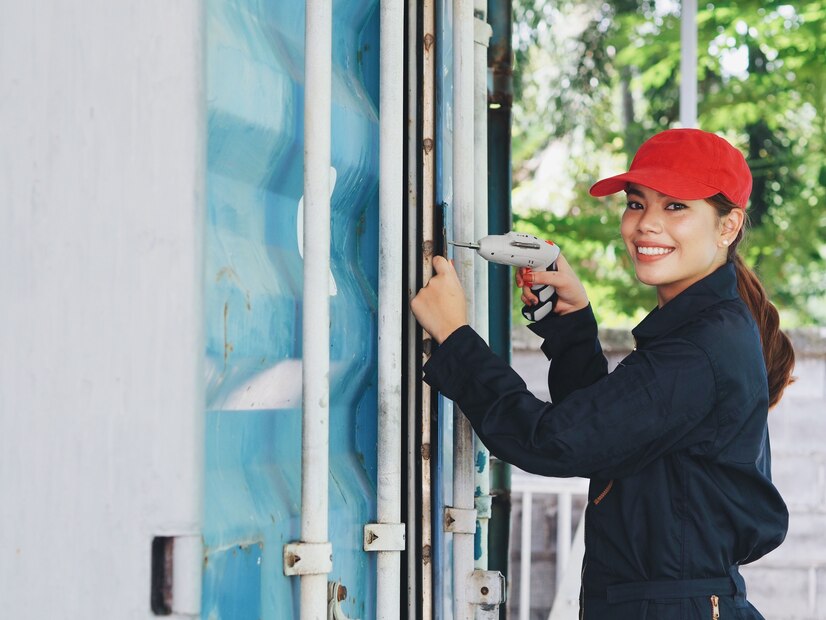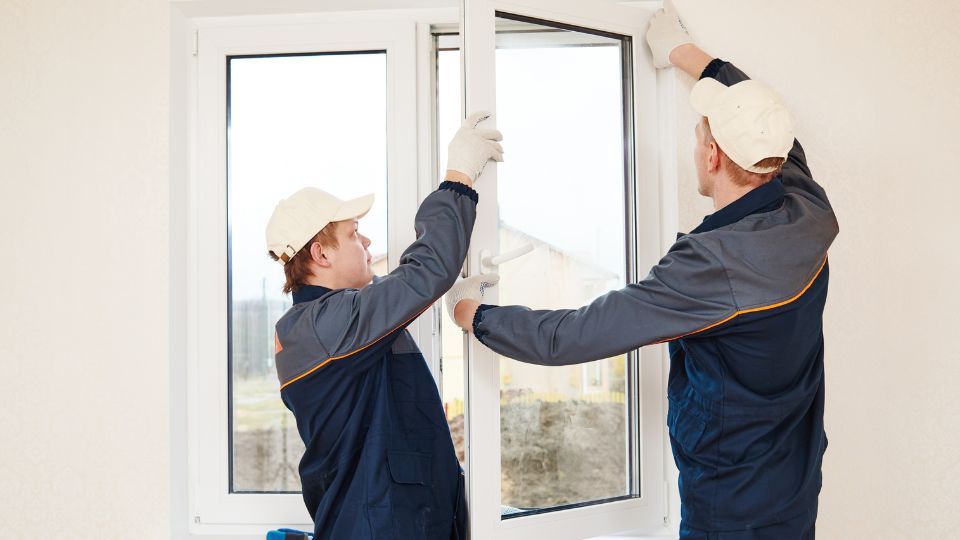Glass repair and maintenance around the home can feel like a daunting task, but with the right approach, it’s manageable. Whether it’s a cracked window, a chipped glass tabletop, or foggy shower doors, addressing these issues early can save you money and hassle in the long run. Regular cleaning with the right products can keep glass surfaces sparkling and free from buildup. For more serious damage, knowing when to repair or replace a piece can make all the difference in restoring the beauty and function of your home’s glass features.
Assessing Glass Damage
When it comes to glass repair, identifying the type and severity of the damage is crucial. Small chips or cracks may seem harmless, but they can worsen over time, leading to more expensive repairs. Start by inspecting the glass carefully, noting any visible flaws like cracks, chips, or fogging. For windows, check if they are properly sealed. For surfaces like mirrors or tabletops, see if the damage affects structural integrity. Understanding whether it’s a simple fix or a replacement job can help you make the right decision early on.
Basic Glass Repair Tools You’ll Need
Before starting a DIY glass repair project, it’s important to have the right tools on hand. A glass repair kit, which often includes resin or adhesive, can be ideal for small cracks in windows. For surface damage, such as chips or scratches, you’ll need a glass polish or abrasive pad to smooth out the imperfections. Other common tools include a utility knife, painter’s tape, rubber gloves, and a microfiber cloth for cleaning. Having these items ready will make the process more efficient and ensure better results.

Essential Tools for DIY Glass Repair
Before you begin, ensure you have the right tools for the job. A basic glass repair kit, which includes resin or adhesive, is perfect for small cracks. You’ll also need items like a utility knife, painter’s tape, rubber gloves, and microfiber cloths for cleaning. These tools will ensure that your repair process is more efficient and provide better results.
Using Resin for Crack Repairs
Resin is commonly used for repairing minor cracks in glass, especially on windows. It fills in the crack and hardens to create a smooth surface. When using resin, be sure to follow the instructions carefully. Applying too much or unevenly can cause air bubbles or ineffective repairs. Resin repairs are typically quick, but allow time for full curing to ensure stability.
Polishing and Smoothing Scratches
For minor surface damage such as chips or scratches, a glass polish or abrasive pad can be invaluable. These products work by buffing out the imperfections and restoring the glass’s smooth surface. Gently apply the polish to the damaged area and buff in a circular motion until the scratch is less noticeable. This method works well for light surface damage but may not fix deeper cracks.
Protective Gear for Safety
DIY glass repair can be tricky, and safety should always come first. Rubber gloves protect your hands from sharp edges, and protective eyewear shields your eyes from flying glass shards or chemicals. Additionally, a dust mask can be useful when working with adhesives or when sanding. Taking these safety precautions ensures that you’re protected while handling potentially hazardous materials during repairs.
Proper Cleaning Techniques
After completing a repair, cleaning the glass properly is essential for achieving a professional finish. A microfiber cloth is ideal for wiping down the area, as it doesn’t leave streaks or lint behind. Use a mild glass cleaner or a vinegar-water solution for the best results. Regular cleaning not only maintains the appearance of your repair but also ensures the glass stays free from dirt or grime buildup.
How to Repair Cracked Windows
Repairing cracked windows is an essential skill for homeowners, as it can prevent further damage and energy loss. Begin by cleaning the area around the crack thoroughly. Once cleaned, apply a glass repair resin or adhesive according to the manufacturer’s instructions. If the crack is large, replacing the glass may be necessary for safety reasons. For smaller cracks, this method can effectively seal the damage, preventing it from spreading. Ensure the resin is fully cured before using the window again to maintain its structural integrity.
Replacing Broken Glass Safely
When a piece of glass is beyond repair, replacement is the best option. Whether it’s a broken window or shattered glass door, safety is key. Start by wearing protective gloves and eyewear to avoid injury. Carefully remove the broken glass, ensuring all sharp edges are handled properly. For windows, measure the dimensions of the broken pane to match the new glass. For doors or shelves, you might need specialized glass. Once you have the new piece, fit it securely into place, applying weather stripping or adhesive as necessary.
Cleaning Glass for Long-Lasting Results
Regular cleaning helps maintain the appearance and clarity of your glass surfaces, making them look fresh and new. Use a glass cleaner that’s free of ammonia to avoid streaks and residue. Microfiber cloths are perfect for achieving a streak-free shine without damaging the surface. For tougher grime, a mix of vinegar and water can work wonders, cutting through oils and smudges. When cleaning windows, be sure to clean both sides for optimal results. This not only enhances the aesthetic but also helps extend the life of your glass surfaces.
How to Prevent Foggy Windows
Foggy windows are often caused by condensation between panes, a common issue in older or improperly sealed windows. To prevent this, ensure that windows are properly sealed and the weatherstripping is intact. If the windows are double-paned, a sealant may be required to fix the issue. You can also use a dehumidifier or moisture-absorbing products in the home to reduce humidity levels, which often contribute to condensation. Regularly checking for signs of fogging will help you address potential issues before they become major problems.
Maintaining Glass Shower Doors
Glass shower doors often experience buildup due to soap scum, water spots, and mineral deposits. Regular cleaning is essential to keep them clear and free from damage. Use a mild glass cleaner and soft cloth to wipe down the doors after each shower to prevent soap scum from accumulating. For tougher stains, a mixture of vinegar and water can dissolve the mineral deposits. It’s also beneficial to apply a water-repellent treatment to the glass, which can help reduce streaks and make cleaning easier in the future.
When to Call a Professional for Glass Repair
Some glass repair jobs require expert knowledge and tools that may not be available to the average homeowner. If the damage is extensive, such as a large crack in a window or structural glass issues, calling a professional is the safest bet. A trained technician can ensure that the glass is properly fitted and securely sealed. Additionally, they can handle the disposal of broken glass safely and correctly. Hiring a professional may be more cost-effective in the long run, especially for complex repairs or glass replacements that need precision.
Conclusion
Maintaining and repairing glass in your home is not only essential for aesthetics but also for safety and energy efficiency. From understanding how to identify common issues like cracks, chips, and fogging to learning preventative maintenance techniques, this guide provides you with the tools to keep your windows and glass fixtures in top condition. Whether you’re replacing a broken pane, addressing moisture between double-pane windows, or simply ensuring your glass doors operate smoothly, regular care can save you time and money in the long run.
For residents of Oro Valley, Vista Glass of Oro Valley is your trusted local partner for all home glass repair and maintenance needs. With a commitment to quality craftsmanship and customer satisfaction, we’re here to help you protect and enhance your home’s value. Trust our expertise to keep your glass features not only functional but also beautiful, contributing to the comfort and appeal of your space.

